Easter has long been a holiday marked by family traditions, elaborate meals, and community gatherings. However, over the years, several beloved Easter traditions have been phased out or transformed to fit with modern sensibilities. While many of these practices have fallen out of favor for practical reasons, others have simply been left behind as society’s tastes and priorities shift. Here are 12 Easter traditions that have slowly disappeared, as nostalgia meets the new rules of today’s holiday celebrations.
1. Easter Egg Rolls at the White House
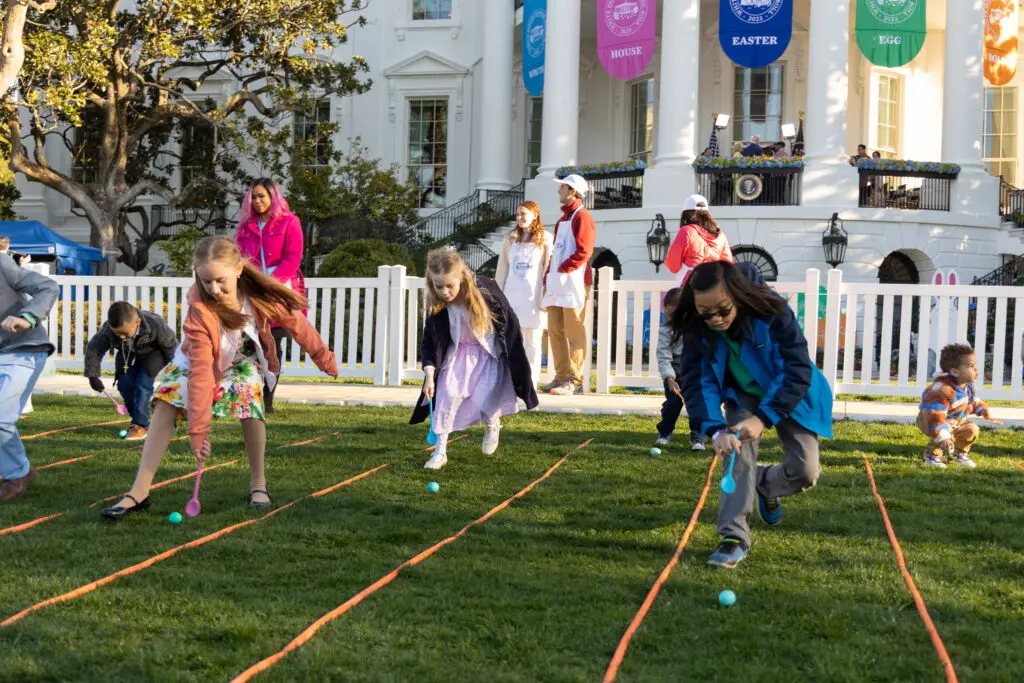
The White House Easter Egg Roll, a tradition dating back to 1878, has been a favorite among American families and a symbol of Easter fun for generations. Originally, children would roll decorated eggs on the White House lawn in a race to see who could push their egg to the finish line first. However, in recent years, this iconic event has seen fewer participants and has struggled with increasing security measures, crowd control issues, and logistical difficulties. NPR reports that attendance at the Easter Egg Roll has dropped significantly in recent years, and some argue it no longer holds the same level of magic it once did.
Despite its decline, the event still occurs every year, albeit in a modified form. The nostalgia surrounding this tradition remains, but it no longer holds the same cultural significance it did during its heyday. With new technologies, social media-driven activities, and a shift in family dynamics, the Easter Egg Roll might continue to fade into the background of more modern holiday observances.
2. Easter Bonnet Parades
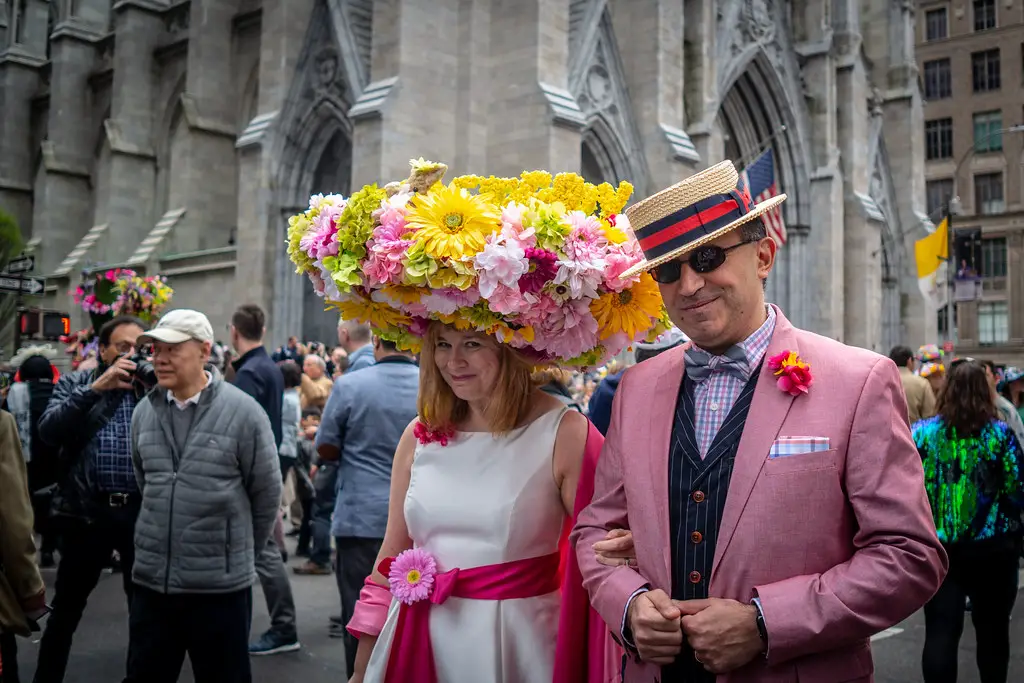
Once a highlight of Easter celebrations in cities across America, Easter bonnet parades have all but disappeared in recent years. Families used to gather, donning their finest Easter outfits and hand-decorated hats, to show off their creativity in local parades. The tradition was a symbol of renewal, with women and children sporting elaborate hats designed to reflect the season’s joy and new beginnings. However, with the rise of more casual dressing styles and less emphasis on formal spring attire, the Easter bonnet parade has become less common.
While a few smaller towns still hold annual Easter bonnet parades, the tradition has largely faded from public consciousness. Mental Floss notes that the practice has fallen out of favor due to changes in fashion and cultural shifts toward more relaxed holiday observances. While some may reminisce about the grandeur of the parades, the casual nature of today’s celebrations has moved away from the formal Easter tradition of dressing up in extravagant hats.
3. Easter Fireworks Displays
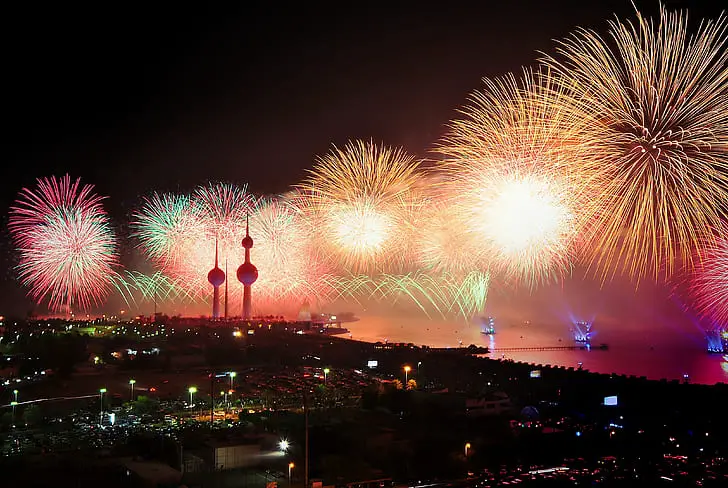
For centuries, Easter was a time for grand fireworks displays in various parts of the world, particularly in Catholic countries. Fireworks symbolized the joy of Christ’s resurrection, with communities lighting up the sky in celebration. However, this tradition has become less common due to safety concerns, noise regulations, and environmental issues. The widespread use of fireworks on holidays like the Fourth of July has also made Easter fireworks less unique and, as a result, less popular.
Some cities still hold Easter fireworks events, but these are fewer and farther between. In many places, the environmental impact of fireworks has led to a reduction in their use, with alternative, quieter methods of celebration gaining popularity. According to National Geographic, the move away from fireworks has reflected a broader environmental awareness and a desire for more sustainable holiday traditions. As such, Easter fireworks are becoming increasingly rare.
4. Easter Egg Hunts in Public Parks
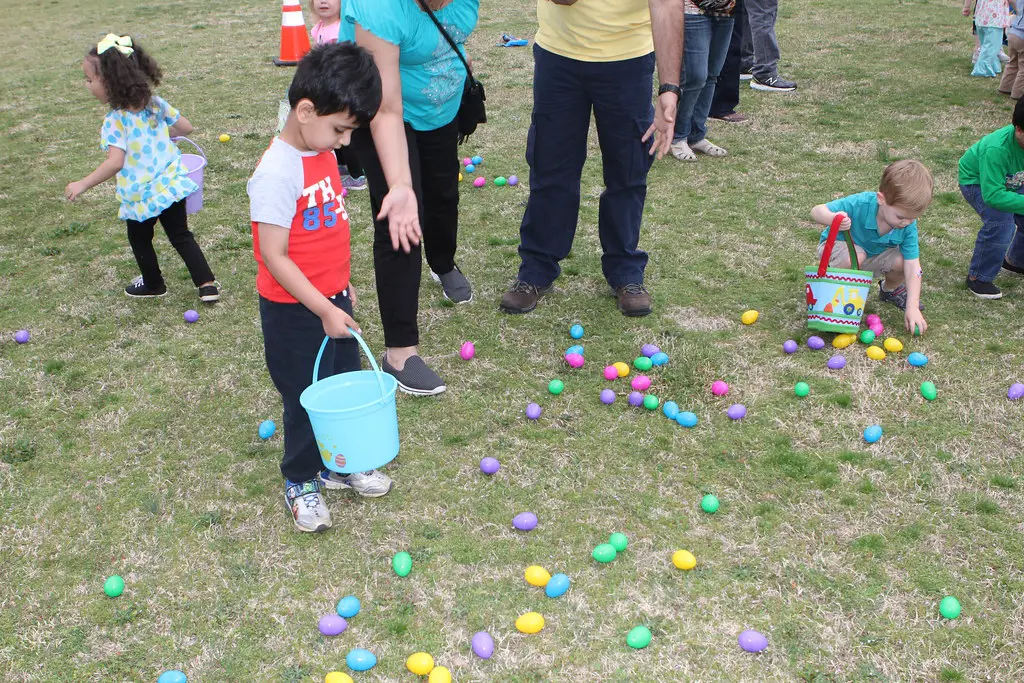
The Easter egg hunt has long been a beloved tradition for families, particularly in public parks where large-scale hunts were held for children. These events were communal affairs, often organized by local churches or community groups, bringing together families to celebrate the holiday. Over time, however, many of these public Easter egg hunts have been phased out in favor of smaller, private family gatherings. There are a number of reasons for this shift, from concerns over safety and liability to the increasing trend toward more personalized celebrations.
Today, most Easter egg hunts are organized within private homes or at paid events, reducing the sense of community once associated with the tradition. The Pioneer Woman offers up private alternatives, noting that the decline in public Easter egg hunts can also be attributed to the rise in security concerns in large gatherings. While the tradition of egg hunting remains popular, the public park events that once drew massive crowds have nearly vanished.
5. Maundy Thursday Church Services
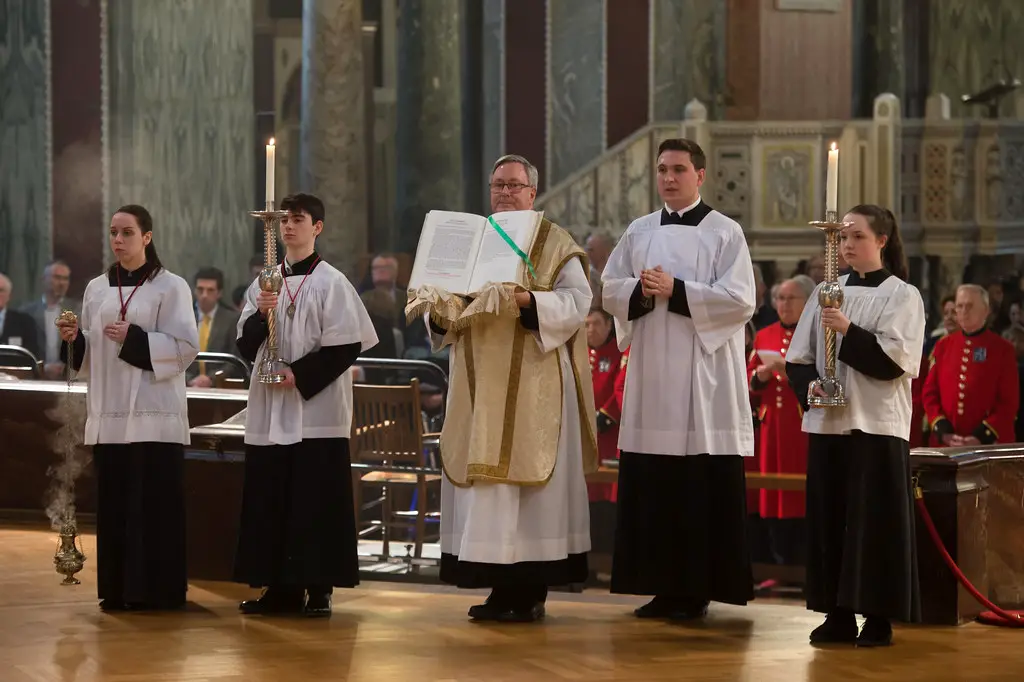
Maundy Thursday, marking the night of the Last Supper, has historically been a significant day of observance for many Christian denominations. Church services often included the washing of feet, symbolizing Jesus’ act of service to his disciples, as well as the sharing of communion. However, as society has become more secular and church attendance has declined, Maundy Thursday services have become less frequent. The observance is no longer as widely practiced, and for many, it’s a tradition that has been left behind in favor of a more simplified Easter weekend.
Maundy Thursday is still observed by some religious communities, but it’s no longer a widespread tradition. Churches have increasingly focused on Good Friday and Easter Sunday, which hold greater significance for many congregants. As a result, Maundy Thursday’s ceremonial practices have been phased out or condensed, reflecting a shift in how people experience Easter in contemporary society.
6. Easter Sunrise Services
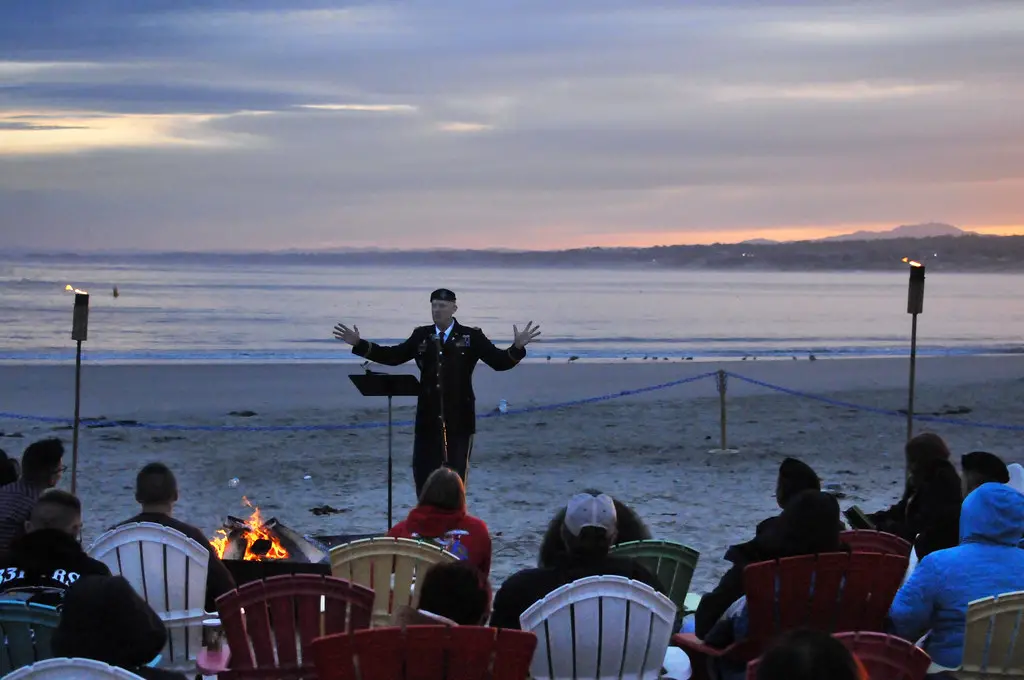
Easter sunrise services, which took place at the crack of dawn to mark the resurrection of Christ, were once a central part of many Christian communities’ Easter observances. These early morning gatherings on church grounds or in scenic outdoor locations provided a quiet, reverent start to the holiday. Over time, however, the tradition has waned as more families have opted for later, more convenient services or even completely non-religious celebrations. While some churches still hold sunrise services, attendance has decreased significantly, with fewer people willing to wake up at dawn for religious observances.
The shift in Easter observance times has been especially noticeable as societal norms have evolved. The convenience of evening services and secular holiday activities has made the early-morning service less appealing. As a result, the Easter sunrise service, once an iconic part of the holiday, is now a rare occurrence in many parts of the country.
7. Easter Parades and Bonnet Wearing for Men
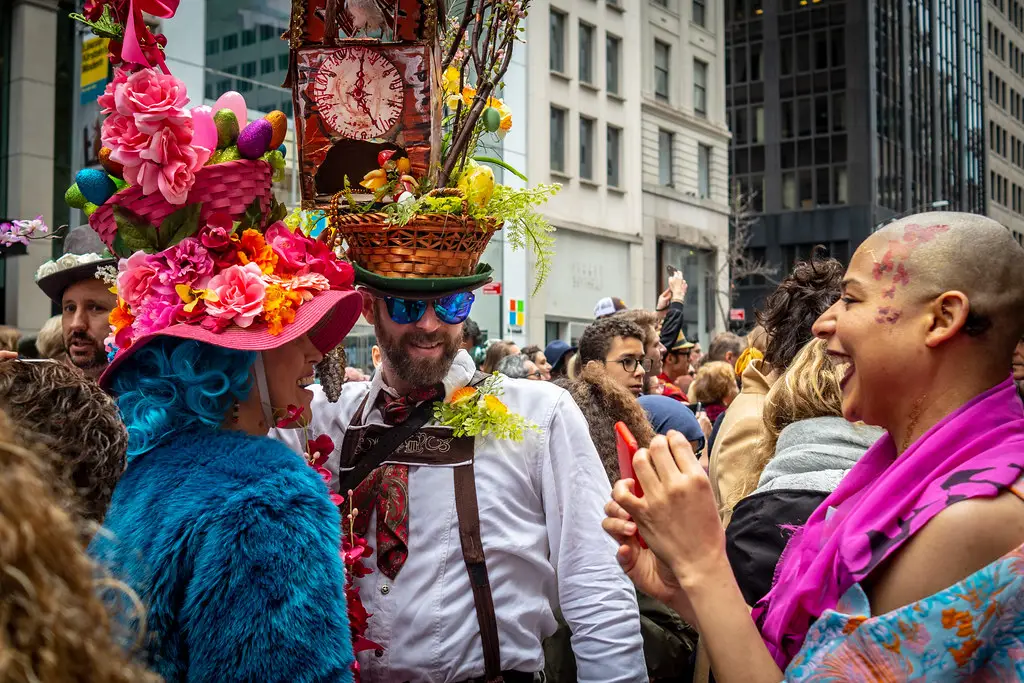
While Easter parades and bonnets have been mostly associated with women, men used to take part in the festivities as well. It was common for men to wear hats, typically top hats or other formal headwear, during Easter Sunday parades. These processions were public demonstrations of wealth and status, with everyone donning their finest clothing. However, as fashion became more casual, the tradition of men dressing in formal wear for Easter parades gradually fell out of favor.
The cultural shift toward more relaxed holiday observances has led to a decline in this practice. Today, Easter parades are far less formal, with many participants opting for casual attire instead of the traditional formal wear that was once a staple of the day. The inclusion of men in these parades has become rarer, as fewer people feel the need to participate in such formal events.
8. Easter Egg Decorating with Real Eggs
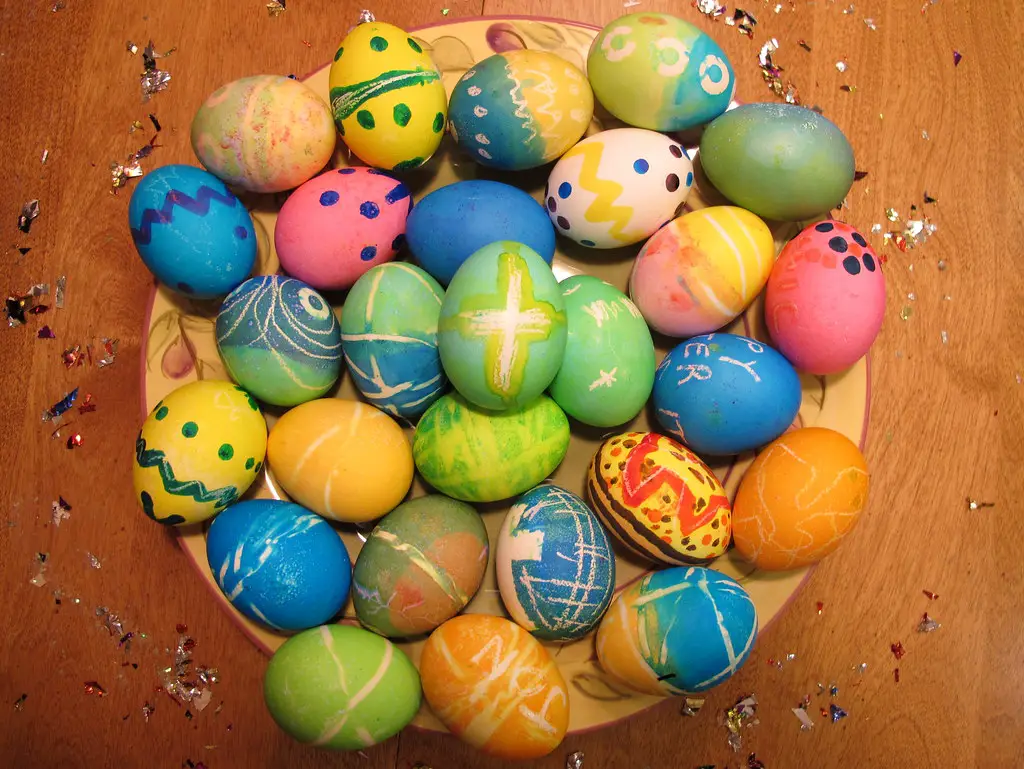
Once upon a time, families would spend hours decorating real eggs for Easter, a time-consuming but beloved tradition. These eggs would be hand-painted, dyed, or decorated with intricate designs, and they would often be hidden for Easter egg hunts. Over the years, however, this practice has been phased out in favor of plastic or foam eggs, which are easier to handle and can be reused. As people sought more convenient and less messy alternatives, the days of decorating real eggs for Easter celebrations became a rare occurrence.
The rise of pre-decorated plastic eggs has made the tradition of dyeing and decorating real eggs almost obsolete. Many families now prefer the convenience of filling plastic eggs with candy or small toys, making the egg hunt easier to set up and maintain. While some still enjoy the nostalgic appeal of decorating real eggs, the practice has gradually fallen out of favor due to the time and effort it requires.
9. Easter Basket Stuffed with Homemade Treats
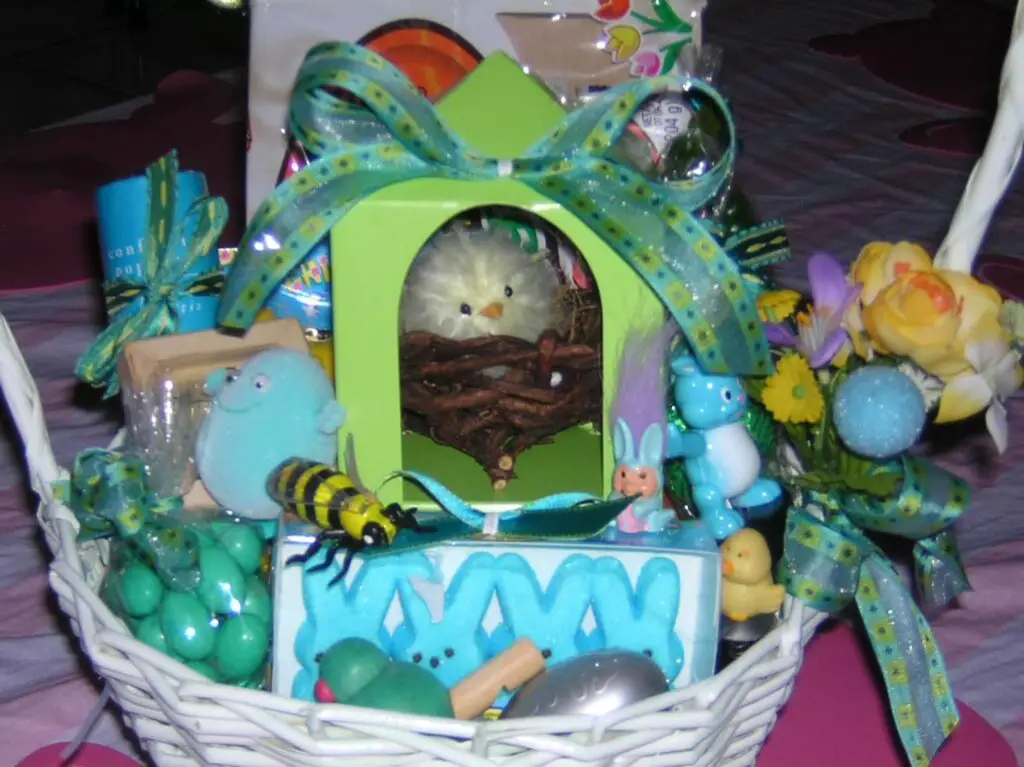
Easter baskets, once filled with homemade chocolates, candies, and other treats, have evolved in recent years. In the past, many families would spend time baking and crafting their own sweets for the holiday, giving the baskets a personal touch. Over time, however, mass-produced chocolate bunnies, jelly beans, and store-bought treats have replaced the handmade goodies that once filled the baskets. With busy schedules and a desire for convenience, homemade Easter baskets are now rare, as many opt for pre-packaged baskets from stores instead.
While some families still enjoy creating homemade treats for Easter baskets, the tradition is becoming less common as convenience becomes a priority. Store-bought treats often come in an array of colors and designs, offering an easier and faster alternative to creating personalized sweets. The shift towards pre-packaged Easter baskets reflects a broader trend toward convenience and practicality during the holiday season.
10. Easter Morning Breakfasts with Extended Family
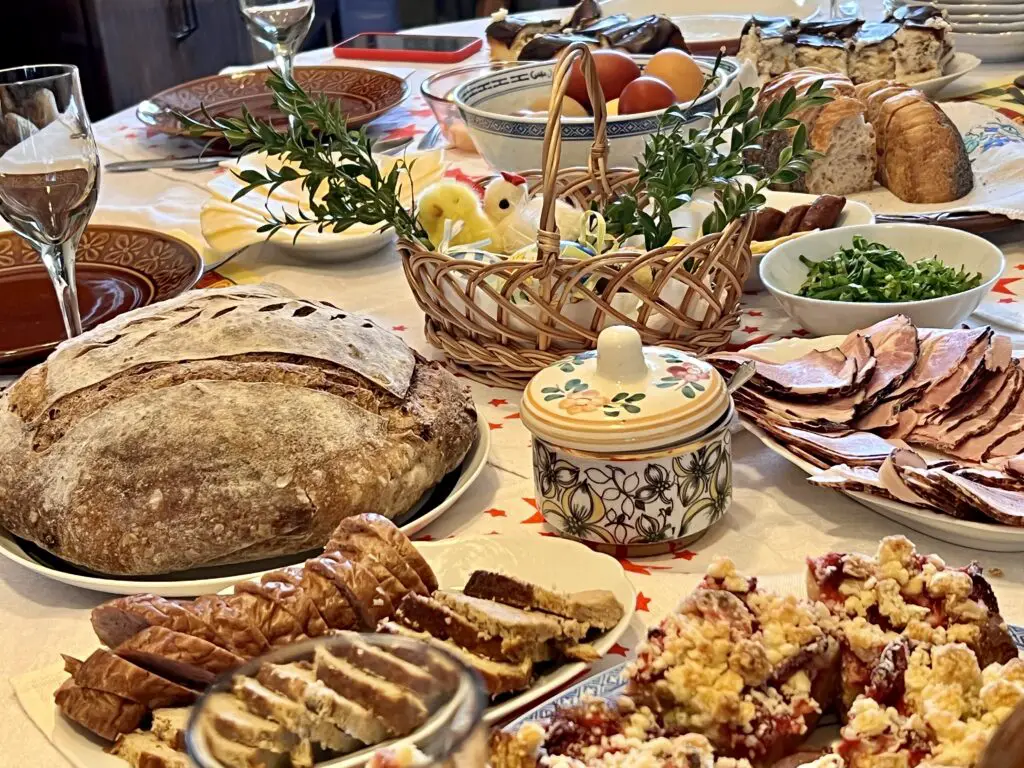
Easter has long been a time for families to come together and enjoy a hearty breakfast before heading to church or beginning the day’s activities. In the past, large gatherings of extended family members were common, with everyone contributing to a festive breakfast spread. However, with the rise of smaller, more intimate family units and busier schedules, the tradition of having a large Easter breakfast with extended family has been largely phased out.
Instead, many families now enjoy quieter meals at home, often with immediate family members only. The focus on a more relaxed holiday schedule means that elaborate breakfasts with a large group have become less common. While some still celebrate with extended family, the practice of gathering for a big Easter breakfast is no longer the centerpiece of the day for most people.
11. Traditional Easter Games and Races
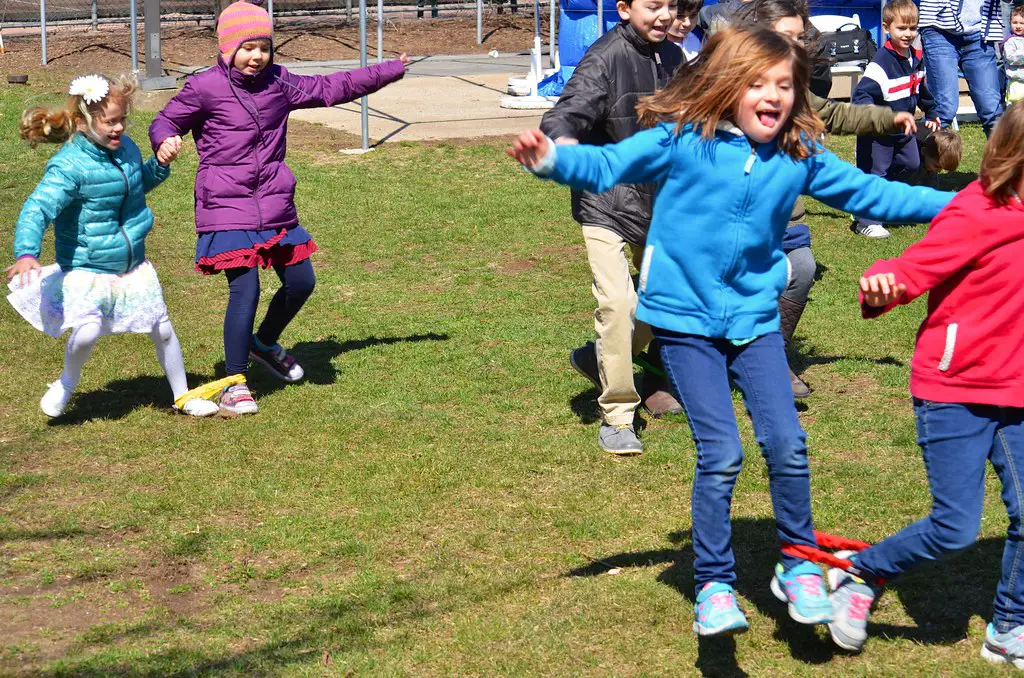
In the past, Easter was often a day filled with fun outdoor games, from egg rolling races to sack races and scavenger hunts. These games were a way to keep children entertained and active while the adults prepared for holiday meals. However, as Easter celebrations have shifted toward more relaxed and indoor-focused activities, many traditional games and races have been left behind. The emphasis on egg hunts and other activities has diminished the importance of these once-popular outdoor games.
With the rise of technology and screen-based entertainment, many children now opt for video games or online activities instead of participating in physical outdoor games. The traditional races and games, which once brought families together in the spirit of friendly competition, are no longer as prevalent in modern Easter observances.
12. Easter Sunday Dinner at Large Hotels
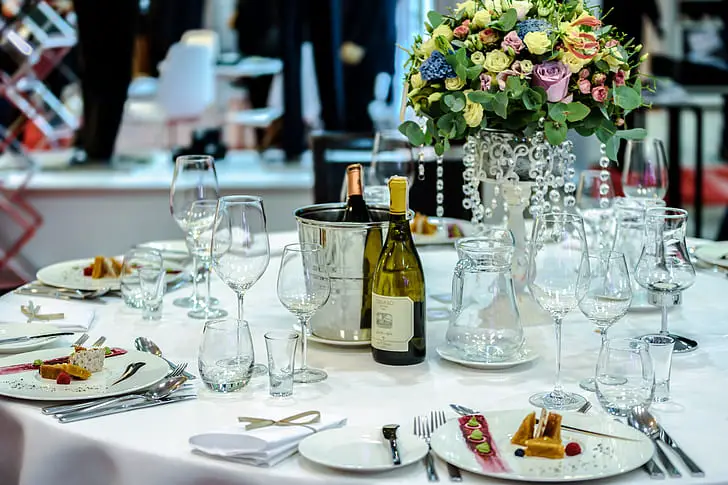
In the early to mid-20th century, it was not uncommon for families to dress up and head to a large hotel or restaurant for an elaborate Easter Sunday dinner. These extravagant meals were often buffet-style, featuring a wide range of dishes to celebrate the holiday. However, with the rise of home cooking and more intimate gatherings, the tradition of going out for Easter dinner at a hotel has declined. Many families now prefer to prepare their meals at home, opting for a more personal and cost-effective celebration.
The shift toward home-cooked meals has also been influenced by the desire for more meaningful and private family moments during the holiday. As people moved away from large, formal dining experiences, restaurants and hotels stopped catering to the demand for Easter Sunday dinners, which further pushed the tradition into obscurity. While some may still enjoy dining out for the holiday, the grand hotel Easter dinners are now a rarity.
